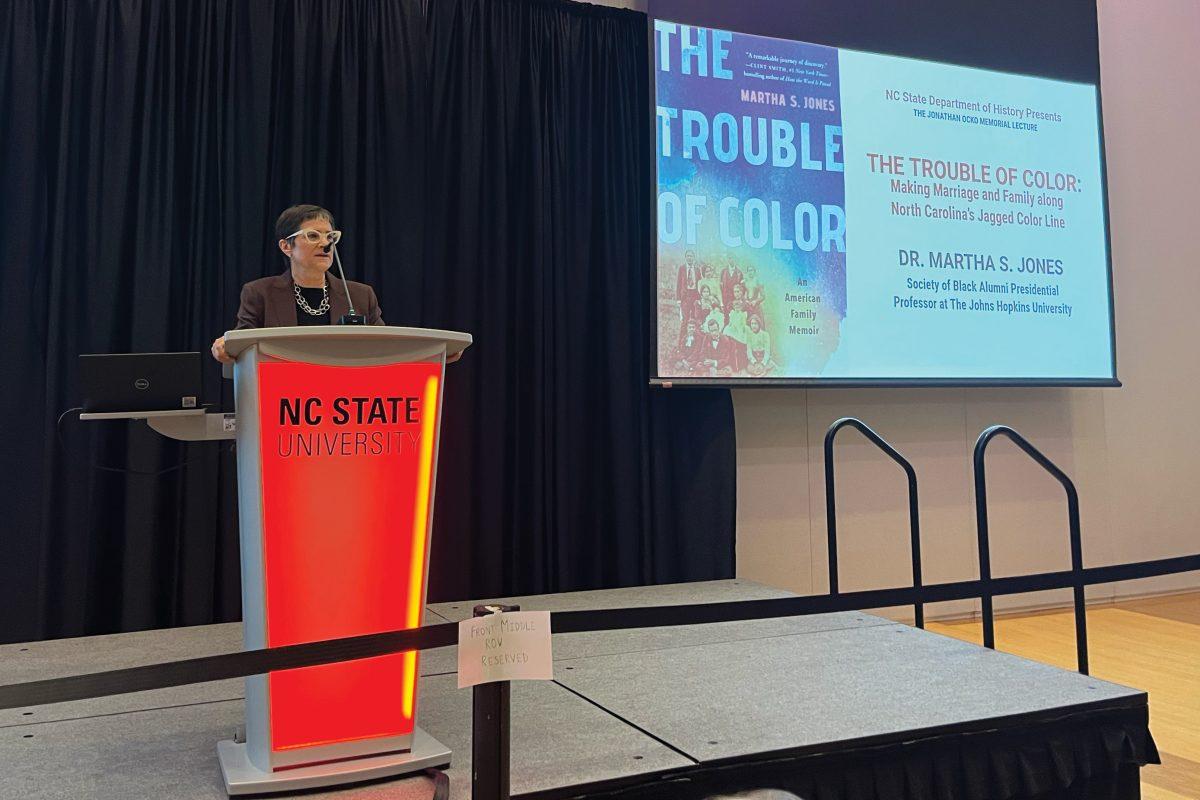A database released on Feb. 11 by U.S. Senator Ted Cruz has put millions of dollars in “woke DEI” National Science Foundation grants awarded to NC State under scrutiny.
Cruz, chairman of the Senate Commerce Committee, identified over 3,400 grants totaling more than $2.05 billion that he alleges were diverted to projects promoting diversity, equity and inclusion or “neo-Marxist class warfare propaganda” during the Biden-Harris administration.
Cruz wrote in a report that “DEI initiatives have poisoned research efforts, eroded confidence in the scientific community and fueled division among Americans.” He released the database, which served as the backbone for his October 2024 investigative report, to expose what he calls the Biden administration’s weaponization of federal agencies.
The Trump administration has since taken action, with President Donald Trump signing an executive order to terminate all DEI programs, offices and positions within federal agencies. The NSF has frozen its annual grant review to comply with this directive.
The database identifies 28 NSF grants valued at approximately $12.6 million awarded to NC State, not including millions more in collaborative projects between NC State and other institutions. These grants support a range of research, from studying coastal algae to developing prosthetic hands. Some grants are aimed at STEM education with modules designed to better prepare prospective grade 6-12 mathematics teachers to teach in increasingly diverse classrooms.
Holden Thorp, former chancellor at UNC-Chapel Hill and editor-in-chief of Science, the American Association for the Advancement of Science’s peer-reviewed journal, said many of these grants were likely misidentified. For example, he said there were grants in organic chemistry that had cis and trans isomers in them, and these terms have nothing to do with gender identity.
Veena Dubal, a professor of law at the University of California, Irvine, and general counsel of the American Association of University Professors, said the targeting of DEI initiatives is part of a broader ideological assault on higher education.
“This term, DEI, has become a red herring for not an actual debate or discussion around issues of equity or issues of racial inequality or issues of marginalization, but instead, it has just become a political signifier for ideas and people that the administration doesn’t like,” Dubal said.
Dubal said restricting DEI efforts will have devastating impacts on the recruitment and retention of underrepresented groups in academia.
“That is not in the interest of the public good,” Dubal said.
The freeze on the annual NSF grant review raises concerns about academic freedom and the future of scientific research.
Thorp said academic freedom is crucial for driving innovation and technological advancements.
“The whole point of academic freedom is to allow people who are experts in their field to exercise their informed judgment about the right things to teach and do research on,” Thorp said.
Dubal said the AAUP views these funding cuts as a fundamental attack on academic freedom.
“This is creating an environment where certain forms of research are discouraged or censored,” Dubal said.
Some examples of targeted grants at NC State include:
$1,602,937 for the North Carolina Center for Coastal Algae, People and Environment, an effort to advance scientific knowledge on the risks of harmful algal blooms in NC coastal waters, including the Pamlico-Albemarle Sound system.
$500,000 for engineering ultra-wide bandgap III-nitride devices for highly efficient and robust electronics.
$1,123,487 for a STEM education project aimed at improving diversity and inclusion in large-scale participatory science projects, which seeks to engage historically excluded groups in scientific research and informal science learning opportunities.
$381,052 for engineering versatile wearable robots for the rehabilitation of children with gait disabilities.
Most of these research projects include vocabulary surrounding prioritizing diverse hiring practices, such as mentioned in A North American monograph of the powdery mildews’ research proposal, which was awarded $1 million from the NSF.
“Fungal biology has historically failed to recruit diverse researchers,” the proposal states. “With this in mind, we will highlight diversity and inclusion in our personnel selection process.”
Other projects, especially regarding developing prosthetics for people with disabilities, have no mention of diverse hiring practices in their proposals, such as the project, Improving the future of retail and warehouse workers with upper limb disabilities via perceptive and adaptive soft wearable robots.
While the project itself has no mention of hiring diverse personnel, its purpose is to better equip people with physical disabilities for the workforce.
“The long-term goal of the project is to improve the quality of work, productivity and employment of people with disabilities, who are the nation’s largest minority and untapped labor force,” the proposal states.
Thorp said Cruz’s use of terms like “neo-Marxist class warfare propaganda” to describe these grants is a political tactic to undermine higher education. He said he believes this rhetoric is “a gross exaggeration” and serves to brand higher education as overly politicized.
“Most faculty members are teaching the students who show up in their classes, doing the best they can to do that, doing research on problems that they think are important,” Thorp said.
Thorp said the freeze on NSF grant reviews could lead to job losses and discourage scientists from pursuing careers in the U.S., ultimately harming the nation’s scientific progress. He said delaying grant disbursements could cause a disproportionate amount of job losses in research-heavy areas such as the Triangle, which could lead to scientists seeking opportunities abroad.
“If we’re trying to build a scientific workforce in this country that relies less on people from outside the United States, then it’s hard for me to see why you would stop any program that’s getting talent into science,” Thorp said.
It remains unclear how the NSF review will impact these specific NC State projects.
In an email statement to Technician, University spokesperson Mick Kulikowski said, “The University is working with various partners to gauge impacts of any changes to federally funded sponsored programs.”












